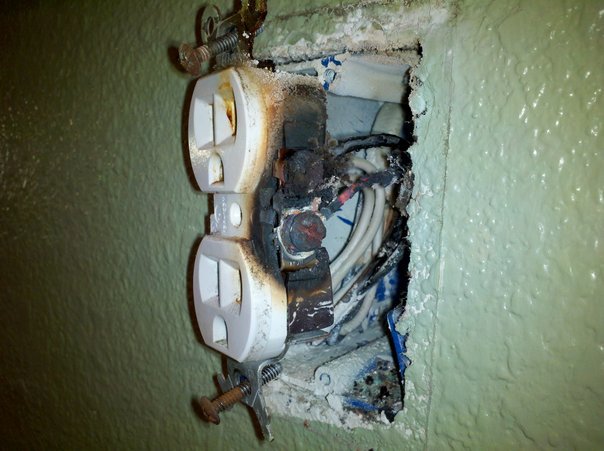My wife leaves her laptop charger plugged into a wall outlet. As soon as she connects the other end to the laptop (meaning AC is actively flowing through the plug to the laptop), it makes a strange hissing noise.
Is this something to worry about? Is this the outlet itself, or a symptom of a bigger problem?

